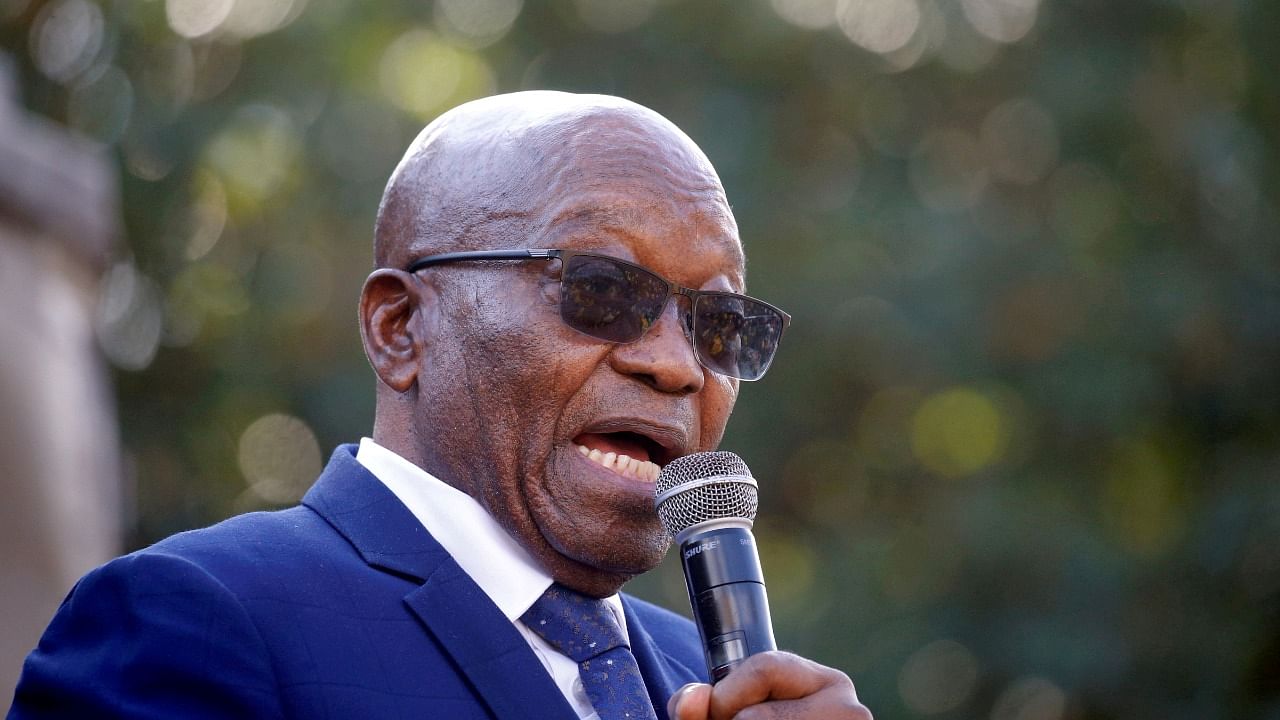
South Africa's former president Jacob Zuma, who is serving a 15-month sentence for contempt of court, has been granted medical parole because of his ill health, jail authorities said on Sunday.
Zuma, 79, was sentenced in June after losing his appeal in the country's apex court for his consistent refusal to appear before the Commission of Inquiry into State Capture, where several witnesses have implicated him in corruption. He is accused of enabling the plunder of state coffers during his nearly nine-year stay in office from 2009 to 2018.
"Medical parole placement for Mr Zuma means that he will complete the remainder of the sentence in the system of community corrections, whereby he must comply with a specific set of conditions and will be subjected to supervision until his sentence expires,” the Department of Correctional Services said in a statement on Sunday.
"We want to reiterate that placement on medical parole is an option available to all sentenced offenders, provided they meet all the requirements. We appeal to all South Africans to afford Mr Zuma dignity as he continues to receive medical treatment," the statement added.
Correctional Services spokesperson Singabakho Nxumalo said he could not disclose Zuma’s exact condition, but quoted the relevant legislation which allowed for this type of parole.
"It has to be someone who is terminally ill or is physically incapacitated, so it’s an inmate whose daily activity is now limited and someone who is unable to afford what we call selfcare. Therefore, that person has to be considered for (parole) placement on medical grounds," Nxumalo told Newzroom Afrika (sic).
Nxumalo said the Department had received independent medical reports from both its own doctors and the military doctors from the South African Defence Force recommending the parole.
Last week, Zuma had refused a request from the National Prosecuting Authority that its doctors be allowed to examine him independently as details of his illnesses could not be divulged.
On July 7, Zuma handed himself over to authorities to begin his 15-month prison sentence, sparking protests which rapidly escalated into massive violence, looting and the deaths of over 300 people in two of South Africa’s main provinces - KwaZulu-Natal and Gauteng.
While in prison, Zuma was first taken to the prison medical wing before being transferred to an external hospital for undisclosed treatments, resulting in him being unable to attend court proceedings last month in a separate trial for graft charges that has been going on for more than a decade.
The Jacob Zuma Foundation welcomed the parole decision.
"It just shows that there is some humaneness in the system, but on the other hand it also indicates the precariousness state of President Zuma’s health," Foundation spokesperson Mzwanele Manyi said.
Manyi said Zuma was still in hospital under the supervision of the prison authorities and would not be home this evening already as his lawyers study the statement by the Department and its implications.
Legal analyst Mphumelelo Zikalala told the channel that the parole officials must have taken Zuma’s health into account.
"In this case, the medical status of the former president must have been taken into consideration and they (would have) said it is much better that you go and heal outside and you make sure that you (have) a much better facility, being in the care of your family; being visited by your doctors without any restrictions, so that at the end of the day you are able to preserve your life,” Zikalala said.